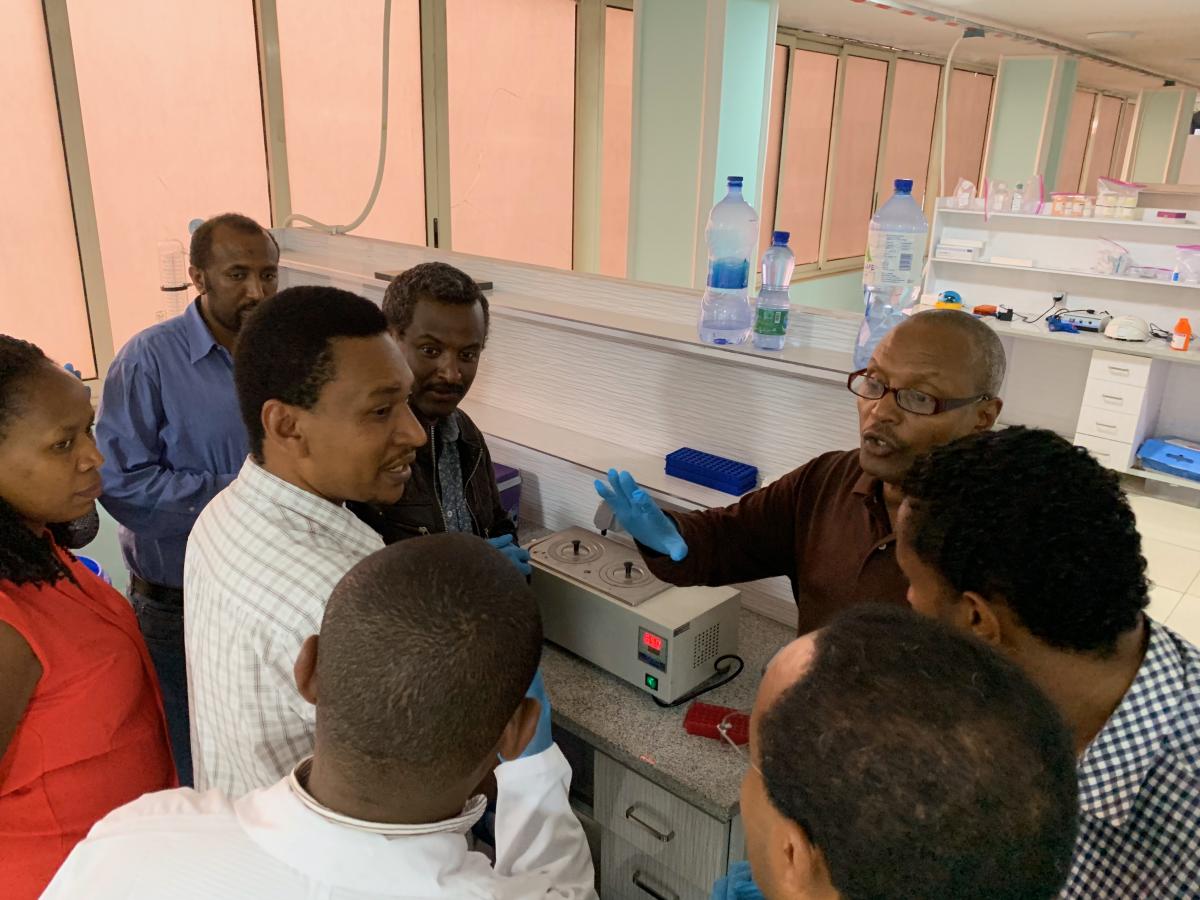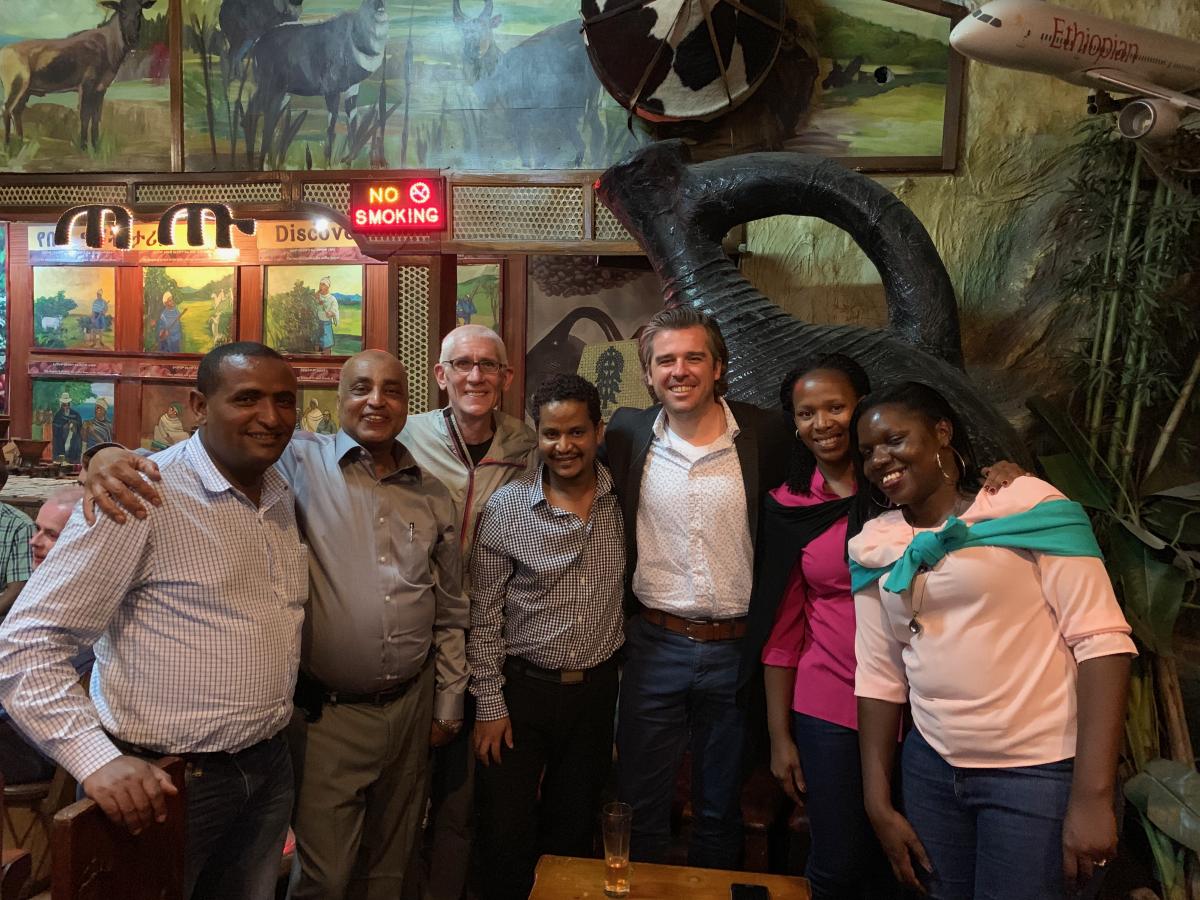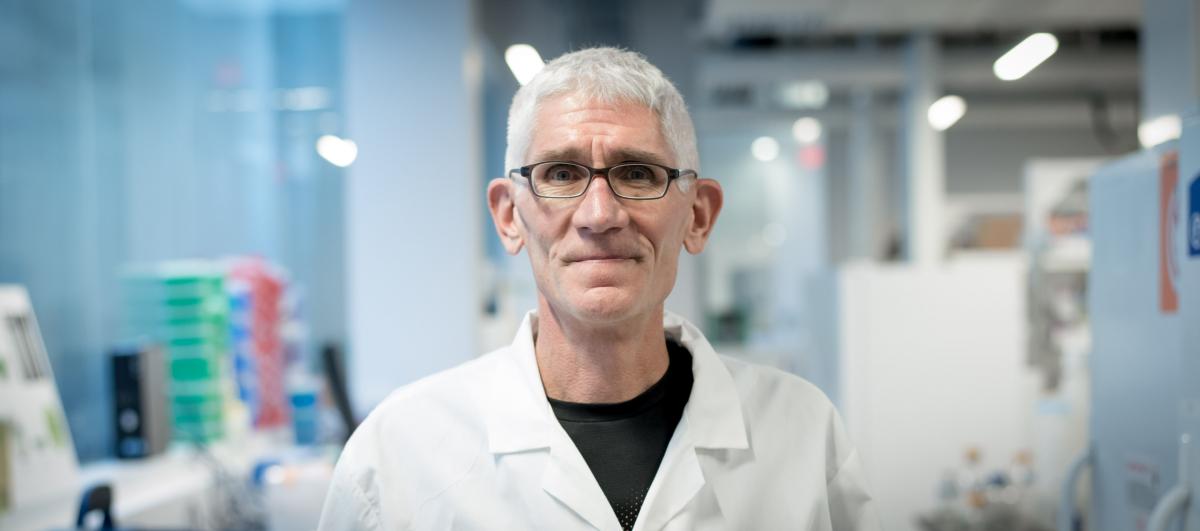It started, like many great things do, with a simple conversation.
Dr. Corey Nislow and Jamal Kurtu were talking one day back in 2018 about public health – in particular, capacity building for genetic research around the world. “I have molecular biology experience and Jamal has a long history with Ethiopia,” says Dr. Nislow, professor at UBC’s Faculty of Pharmaceutical Sciences. “It was just us talking about what could we do, as two people who have passion and interest.”
That was when Kurtu, Faculty of Pharmaceutical Sciences director of operations, mentioned he was preparing to visit family in Ethiopia. “We thought, rather than talking about it, we should see what we could do,” recalls Dr. Nislow.
That was a lot, as it turns out. Currently, there is a huge lack of genomics data from Africa. In fact, out of the one million-plus genomes sequenced so far, only around two percent come from individuals of African descent. And that is despite scientists’ unprecedented collaborative global initiative to fully map and understand human DNA. As it stands now, the vast majority of genomes studied are from European populations. That’s unfortunate for many reasons, Dr. Nislow says, and not just for the obvious ones. Africa has greater genomic diversity than anywhere else in the world, meaning that studying African populations can lead to a better understanding of the connections between genetics and diseases for all humans.

Dr. Zewdu Terefework demonstrates DNA isolation for several trainees (photo: Corey Nislow)
“Genetics is all about frequencies,” he explains. “Without enough data, your frequency predictions are not conclusive. You need hundreds of thousands of sequences.”
It was this data inequity that the pair set out to address. Kurtu and Dr. Nislow joined with Faculty of Pharmaceutical Sciences professor and Dean Emeritus Dr. Robert Sindelar. The trio developed a proposal for what would become the Ethiopian Translational Health Innovation project (ETH-I). One of the goals is to correct the imbalance in the current state of genomics research, the foundation of which is the Human Genome Project. The other aim – perhaps just as crucial – is to train African researchers to do their own sample-gathering and genomic analysis.
Scientific research in Africa has historically involved experts from other continents arriving uninvited, conducting studies with questionable consent processes and departing with the data, Dr. Nislow says. He and his peers designed The ETH-I initiative to take a different approach: to empower innovation in healthcare and wellness in African universities by developing local capacity, driven by stakeholders.
“If this was going to work, it was going to be by Ethiopians, for Ethiopians,” Dr. Nislow says.
The UBC ETH-I team first visited Addis Ababa in 2018, establishing relationships and defining mutual areas of interest with partners, including Addis Ababa University, the Center for Innovative Drug Development and Therapeutic Trials for Africa and Ethiopia’s Ministry of Advanced Education and Ministry of Science.

The ETH-I group in Addis Ababa (photo: Corey Nislow)
Kurtu and Dr. Nislow returned to Addis Ababa in April 2019 to conduct a two-week hands-on workshop, guiding local researchers in sample-gathering and genomic analysis methodologies. Attendees included early-stage graduate students, senior Ph.D. candidates, staff scientists, professors and scientists from Uganda. By the end, local researchers were ready to launch the next phase of the initiative, in which they would decode genomes of several thousand Ethiopian individuals, native natural products and pathogens.
The “train-the-trainers” approach has several benefits, says Kurtu. It increases local capacity for gathering research, amplifying the total amount of African samples that can be collected. It also ensures valuable health data and research can be used, iterated upon and applied locally. And it contributes a network of local researchers who can collaborate on research projects or work independently on studies of their own design.
“Obviously, if some of the trainers don't become part of the network, they still are equipped with tools to do their own work,” says Dr. Nislow. “Maybe they want to do molecular oncology or look at biodiversity using molecular techniques. That would fit the core mission of the program, which is to sequence Ethiopian data and that of neighbouring countries.

Capillary array of a DNA sequencer used at the UBC Faculty of Pharmaceutical Science (photo: Justin Lee Ohata – UBC Faculty of Pharmaceutical Sciences)
The COVID-19 pandemic blocked the UBC team’s plans to return to Ethiopia last year for additional training and partnership development. So instead, they are planning a series of videos to support training for additional African researchers. They will also continue work on another important aim of the ETH-I initiative: addressing the departure of qualified scientists and researchers out of the country and continent.
“Brain drain in Africa is extremely high,” says Kurtu, who was born in Ethiopia. “Many intellectuals and educators leave Africa for an opportunity and don’t go back. Our thinking was that if you train people – if you create a facility with the equipment, the solutions, the media, everything they need – that will circumvent the loss of science and research capacity.”
Success will depend on relationships. Towards that end, Dr. Nislow has developed a collaboration with CDT-Africa and the University of Addis Ababa, where he is an adjunct professor. Working closely with CDT-Africa Director Dr. Abebaw Fekadu, next on the agenda is more video training, plus a grant proposal to sequence another 1,000 Ethiopians.
And the approach is crucial. Says Dr. Nislow, “We are not going there and saying, ‘We know what’s best for you. Listen to us.’ We’re saying, ‘How can we help you?’”
Read more about the Ethiopian Translational Health Innovation project.

Dr. Corey Nislow in his lab at the UBC Faculty of Pharmaceutical Sciences (photo: Justin Lee Ohata – UBC Faculty of Pharmaceutical Sciences)
